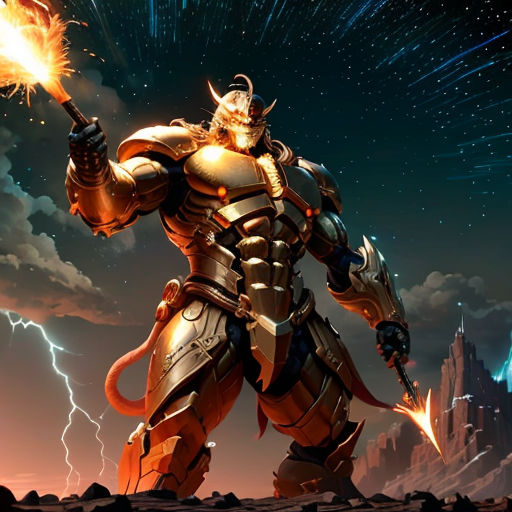
The Redemption of Sisyphus Prime
By Alan

22 Jan, 2024
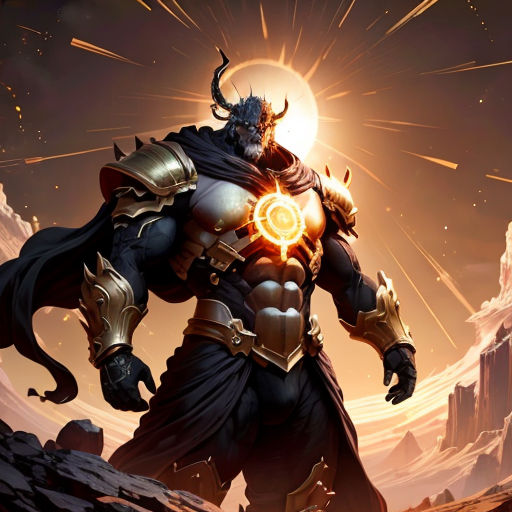
Sisyphus Prime stood tall, a golden statue of power and dominance. His sun-like head illuminated the darkness, and his red, blood-soaked hands were clenched in fists of determination. He looked out at his vast empire, his heart filled with pride and arrogance.
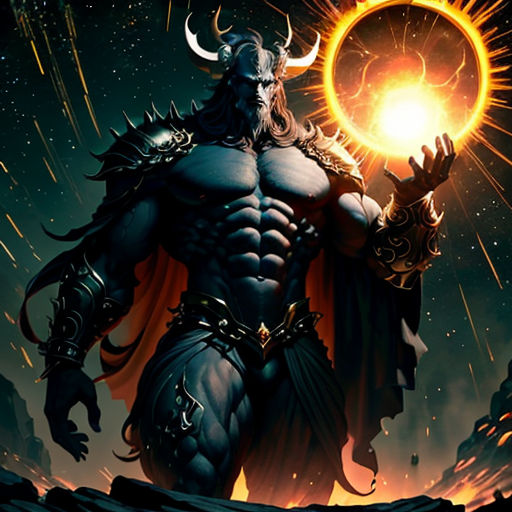
His countless conquests had earned him both fear and respect. However, his thirst for power was insatiable. He desired to challenge the gods themselves, to prove his supremacy over all.
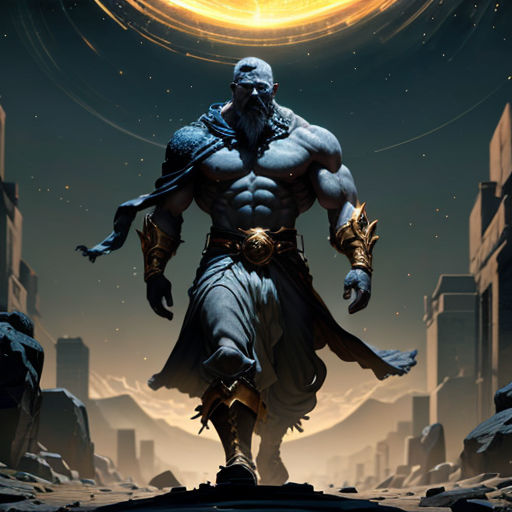
So, he declared war against the gods. A battle that seemed impossible, even for a being of his might. His declaration sent shockwaves throughout the kingdoms, causing panic and chaos.
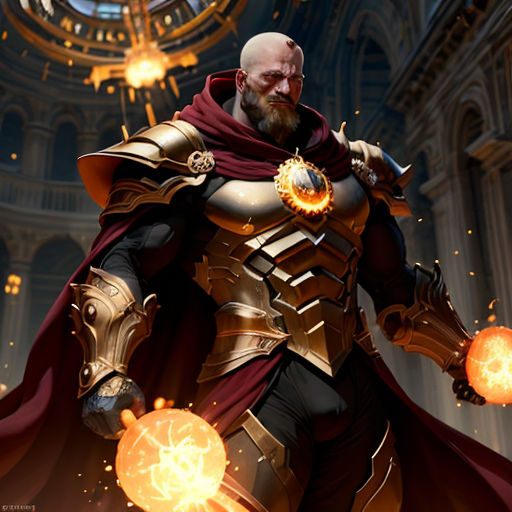
As he prepared for the impending battle, he found himself questioning his actions for the first time. The fear in his subjects' eyes, the chaos he had caused, made him ponder the true cost of power.
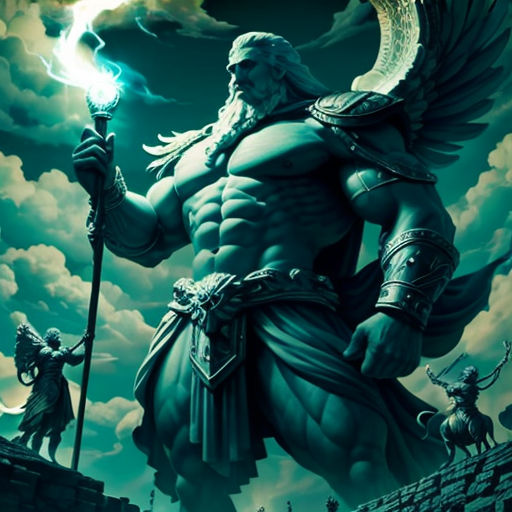
Meanwhile, the gods assembled their army, led by the mighty Zeus. Zeus was a formidable deity, renowned for his strength and wisdom. Sisyphus Prime knew that challenging him would not be an easy task.
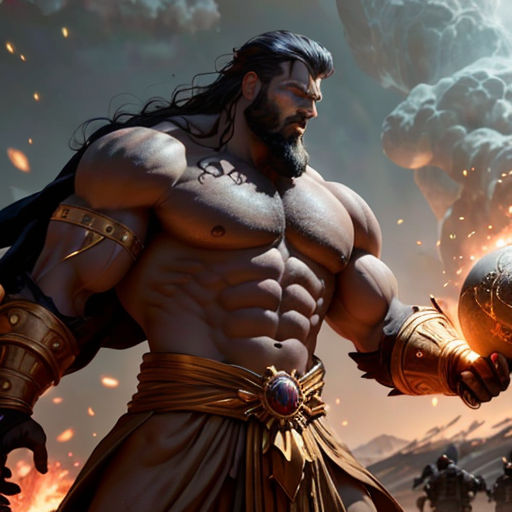
The day of the battle arrived. Sisyphus Prime faced the gods' army with a calm demeanor, masking the turmoil within him. His arrogance and charisma were on full display as he stood unflinching before the divine force.
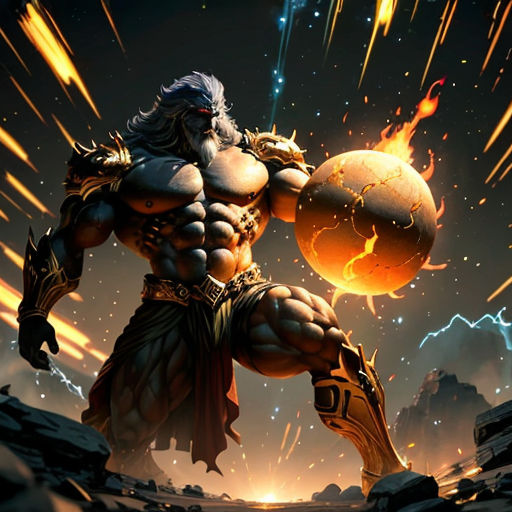
The battle was fierce and brutal. Sisyphus Prime fought with all his might, his luminescent body glowing brightly amidst the chaos. Yet, the gods' power was overwhelming, and he found himself on the brink of defeat.
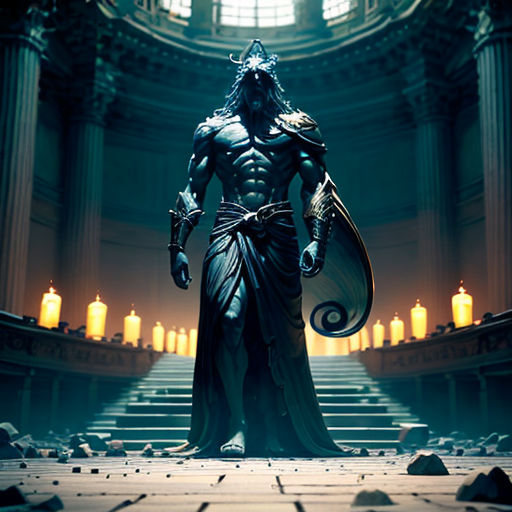
In his darkest hour, a realization dawned upon him. His quest for power had blinded him to the value of compassion and peace. He had become a tyrant, feared by his own subjects.
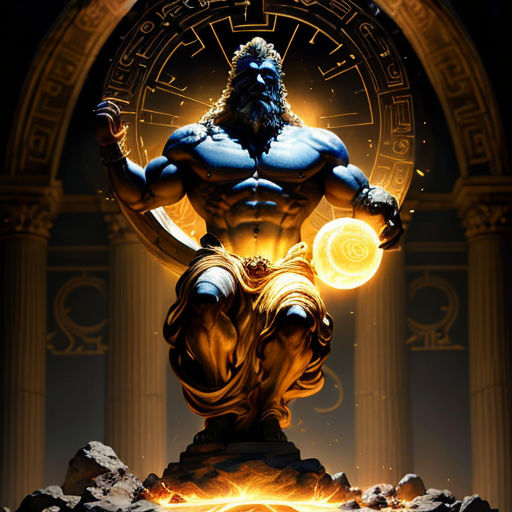
He begged for mercy from the gods, promising to change his ways. Zeus, in his wisdom, saw the sincerity in his plea. He granted Sisyphus Prime a chance to redeem himself, but not without a test.
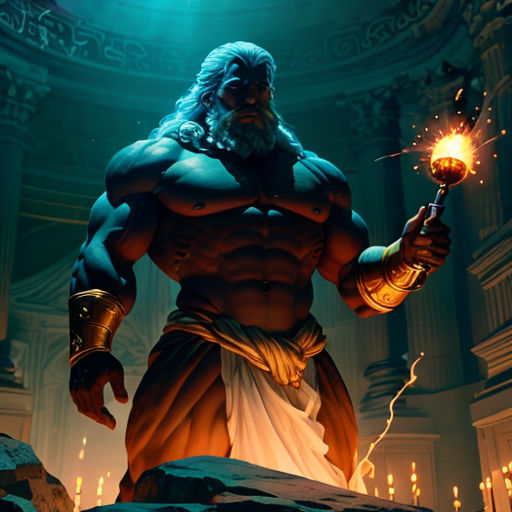
Zeus placed a condition – Sisyphus Prime had to relinquish his power and live as a mortal. He had to understand the suffering of his people, to truly comprehend the cost of his tyranny.
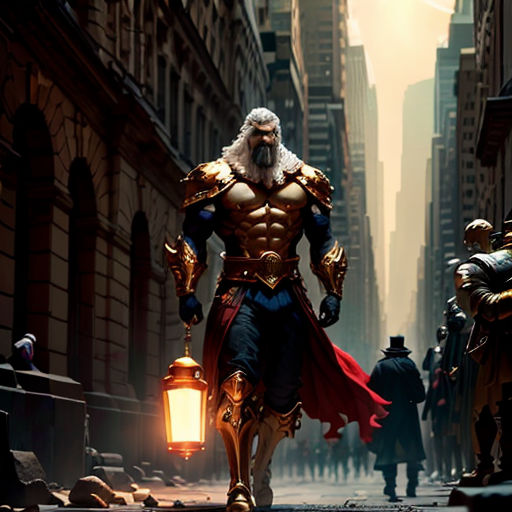
Sisyphus Prime agreed to the condition. He was stripped of his power and his golden, luminescent body faded to a mortal's form. He was left to live among the people he had once ruled with an iron fist.
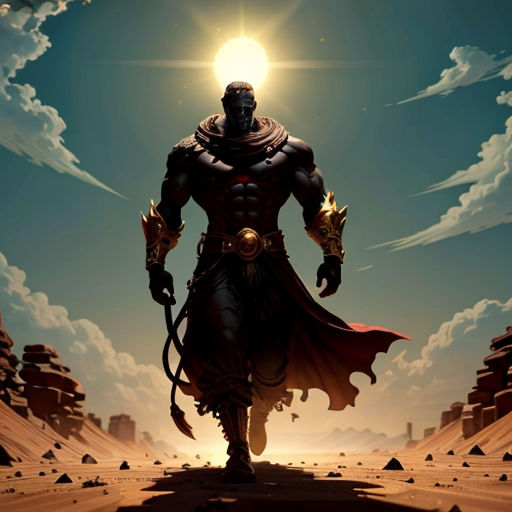
As a mortal, Sisyphus Prime experienced the hardships his people endured. He toiled under the scorching sun, faced hunger and poverty, and understood the fear and despair his reign had inflicted.

He began to change. The arrogance and charisma were replaced by humility and empathy. He learned to appreciate the value of peace and the importance of compassion.
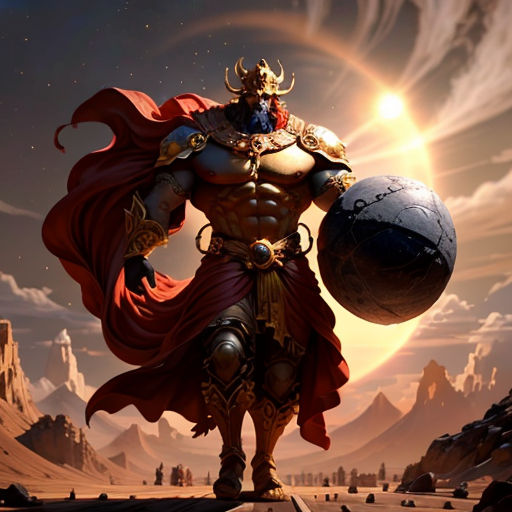
He worked hard to alleviate the sufferings of his people. He shared his food, helped build homes, and became a beacon of hope for those who had once lived in fear of his wrath.
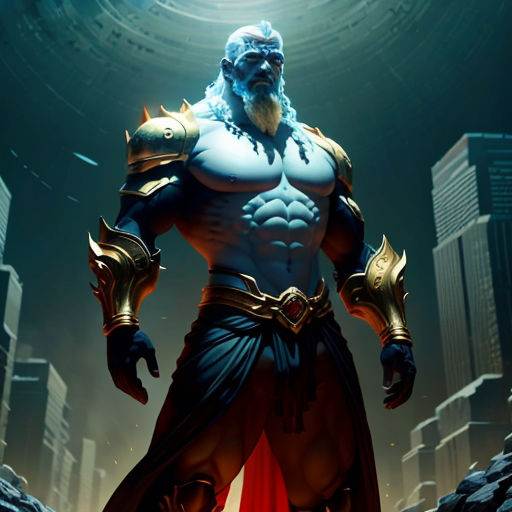
His transformation did not go unnoticed. The people began to see a different side of their former ruler. They saw a man who had learned from his mistakes and was trying to make amends.
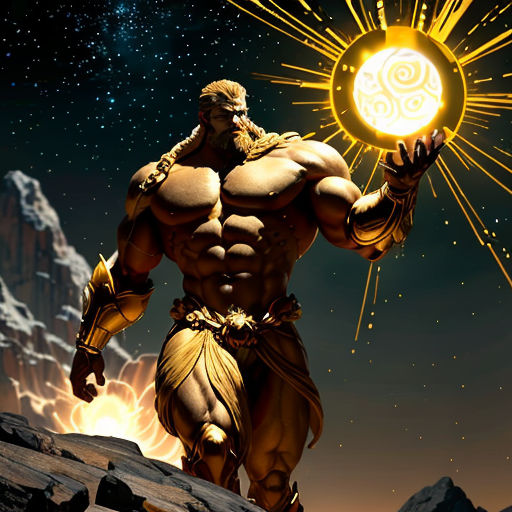
Word of his deeds reached the gods. Zeus, impressed by Sisyphus Prime's sincerity and effort, decided to reward him. He restored some of his powers, but not his dictatorship.
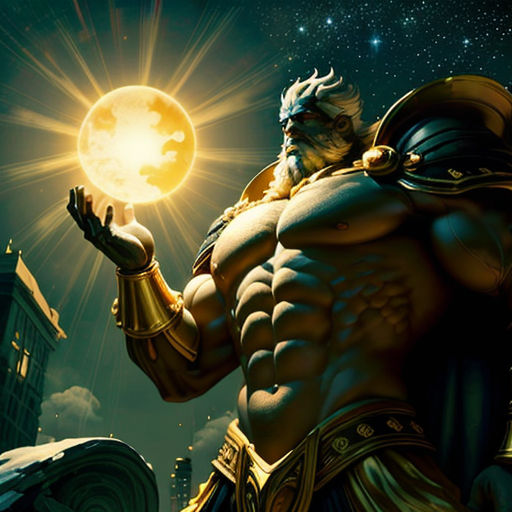
Sisyphus Prime, now a hero among his people, continued his journey towards redemption. He used his restored powers to help and protect his people, proving that power could be used for good.

His story served as a reminder of the dangers of unchecked ambition and the importance of understanding the consequences of one's actions. His redemption became a beacon of hope for those seeking a second chance.
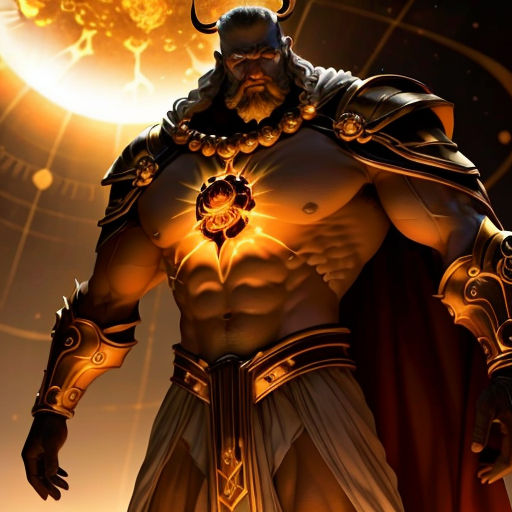
In the end, the once arrogant and feared dictator had become a symbol of change and redemption. Sisyphus Prime's journey from a ruthless dictator to a compassionate protector became a timeless tale of transformation.
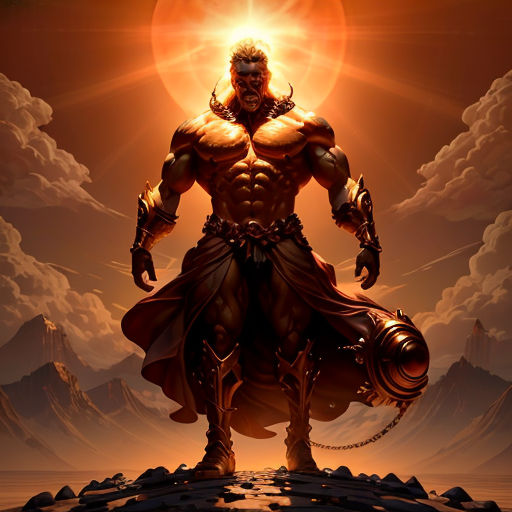
He proved that even the mightiest can fall, and that true power lies not in domination, but in understanding, compassion, and the ability to change. His story echoed throughout the ages, a testament to his redemption.
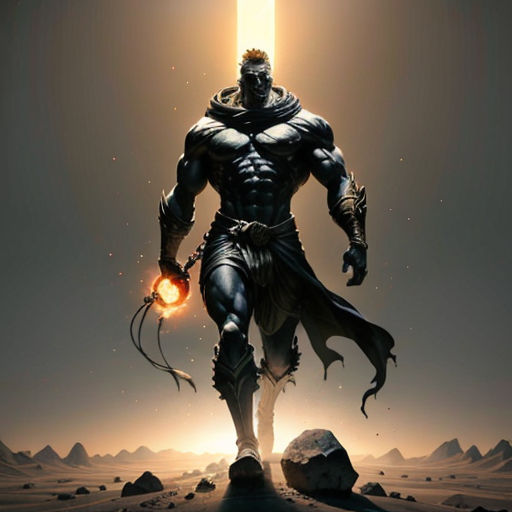
Thus, the Redemption of Sisyphus Prime became a tale to inspire and guide future generations. It was a story of power, change, understanding and most importantly, redemption.